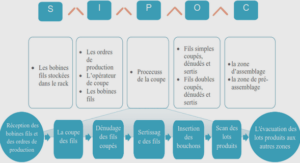HISTORICAL BACKGROUND TO JANE AUSTEN’S NOVELS: ENGLISH SOCIETY IN THE NINETEENTH CENTURY
Patriarchal describes a general structure in which men have power over women. Society is the entirety of relations of a community. A patriarchy from the ancient Greek patriarches, was a society where power was held by men and passed down through the elder males. When modern historians and sociologists describe a patriarchal society, they mean that men hold the position of power, the head of the family unit, leaders of social groups, boss in the workplace and head of government. Feminist theorists have expanded the definition of patriarchal society to describe a systemic bias against women. As second wave feminists examined society during the 1960s, they did observe households headed by women and female leaders. However, the way society perceived women in power as an exception to a collectively held view of women’s role in society was more significant rather than the underlying bias of a patriarchal society.
Beyond the individual’s deeds to symbolize the past, personal relationship epitomizes history of people. As the literacy of British society was increased in the late 18th and early 19th centuries, the Victorian society was a patriarchal society where men were the only ones who were economically empowered whereas the women were forced to depend on men for financial stability. Furthermore, the Victorian society was particularly about class and inter-class marriages were not accepted in society. In the same perspective, the patriarchal society of 19th century Britain tried to limit women’s reading by promoting the danger of reading some literary works that were not appropriate for women, making prohibition and creating a standard about what women were supposed to read. Gender mattered in the Victorian patriarchal society that believed women must be protected from reading particular texts.
In this respect, one may argue that a variety of anxieties appeared and there were not many books left for women or girls to be read in public. Critics always appear in almost every kind of text: science and the classic risked transgressive access to knowledge, botany meant sexuality, astronomy evasion of traditional femininity, classical literature usurpation of male prerogatives, poetry disruptive imagination, metaphysics revolution, the novel seduction and even the Bible troubled female delicacy. For the conservative thinker of Victorian society, the most respectable reading contains hidden dangers and to some extent this is borne out by the gleeful way in which women readers used legitimate text for their own purposes. Women and girls reading was very limited particularly to religious texts, sermons, history, travels, household conduct books, magazines and imaginative literature. Similarly, women’s reading habit toward a certain text relied on circumstances, condition, position and also on family social and educational background.
Social Order
Until the late nineteenth century, social order in Britain was based on a stratified class division which most people regarded as inevitable and indeed as divinely ordained. The country was dominated by noble landowners who administrated the local justice and monopolized the agricultural sector. At the same time, marriage was commonly regarded as an economic arrangement uniting families and estates because people had different conventions of marriage.The convention of marriage was not a union based on love between two people. Rather, it proceeded from the approval by parents of the would-be couple. If members of the families disagreed on principles, there was no way for the couple to be married. The fact that people respected the middle social value, meaning the couple belonged to the same class and behaved according to a strict Victorian social code (1832-1901), there were many happy marriages as As early as 1845, the Conservative Prime Minister, Benjamin Disraeli, saw that England was being divided into “two nations”, one rich and the other poor. The middle class Victorians believed in hard work, moral seriousness and social respectability whereas the Evangelicals believed in a strictly puritanical code of morality. Members of the wealthy middle class came from Evangelical and Nonconformist background. In Mansfield Park, the fact that Fanny came from a poor family and was raised in a wealthy family is very meaningful. For a woman to succeed in life, in the writer’s view, she needed to live in a good condition and rely on herself in order to be free.




